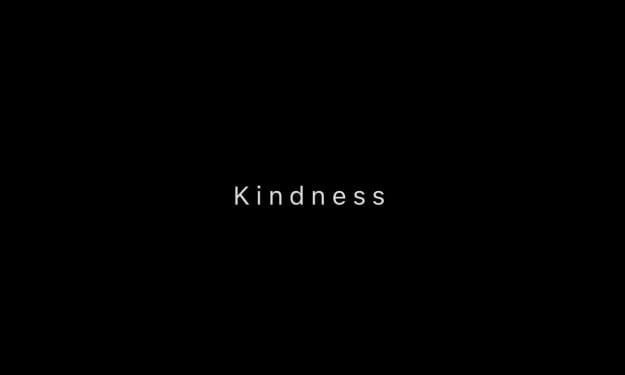7 Tips for Choosing a New Career Path
7 Tips on Choosing a Career Path That Will Make You Happy

Do you have questions about your professional future? Do you want to know how to find your way? Rest assured, you are not alone. More and more employees are looking for meaning and are thinking about their professional orientation.
They feel that they no longer fit in with their current job, that their career is no longer exciting them. This is even more true with the new generations who are inclined to professional changes and are looking for fulfillment above all.
It is common today to see an engineer become a rock climbing teacher, or a teacher become an accountant. However, whether you want to discover a new profession at age 30 or at age 50, it is not always easy to know your professional path. It is therefore essential to ask yourself the right questions before you start.
Find your vocation
The famous Confucian proverb: "Choose a job you love, and you will not have to work a day in your life" is a dream!
We spend a significant part of our lives at work. Work contributes to our well-being by fulfilling our aspirations, our values and our social needs. It allows us to live, but also to find a place in society.
So when all or part of these needs are no longer met, it can give way to a feeling of malaise and demotivation. It is at this point that the question of (re)finding one's professional path arises. Knowing what drives us, what motivates us, allows us to give meaning to what we do and to feel good.
Feeling like you don't belong is confusing. It can become, in the long run, morally difficult. But rest assured, everyone has a vocation, a life mission. The challenge will be to find it, to reconnect with your professional desires. Once you have done this, you will feel liberated and energized!
How to find your career path ? : 7 Tips

1. Take a step back
To have a clear head and take time to reflect, it is necessary to clear your mind. How can you answer all the questions you may have if you have your head in the sand? Taking a step back from your life, slowing down the pace, allows you to refocus on yourself and helps you to find answers to your questions.
Take a vacation, some time for yourself, try meditation to create an environment conducive to the definition of your professional project.
2. Don't be afraid of the way others look at you
We are conditioned from a very young age. We have to have a good education, a good salary, a good job and a good family. And don't forget that you shouldn't make too many waves (you shouldn't overdo it either). We attach great importance to the way others look at us, to what they may think of us.
So, when we want to think outside the box, we are afraid of looking like lunatics: what will my friends and family think if I convert? Will I disappoint them? Will they think I'm a hopeless case? Many other questions may come to mind. In this case :
- Think about yourself, about what you really want, take care of yourself. For once, it's you first, the others will see you later! Your objective is to feel good in your work, to be happy. No one else will be able to be happy in your place;
- Be less strict with yourself, allow yourself the right to make mistakes. Know that you are often harder and more demanding than others are with you. You fear being judged, but many people are benevolent. They can even be supportive;
- Assume your quest for happiness. There is no shame in wanting to find your career path and change jobs.
3. Stop limiting beliefs
Limiting beliefs are the limits we set for ourselves. They are also called "mental blocks". These beliefs come from our own experience. These limits prevent us from being ourselves and from fully asserting ourselves.
Each of us will have different beliefs depending on our history, our education, our life environment. In a reconversion project, they can be an obstacle to taking action and succeeding. They can come from :
- A lack of self-confidence: it's useless, I can't do it, I don't know how to speak in public, ...
- Fear of other people's opinions: they'll think I'm crazy, they'll think I'm useless, they won't appreciate me, etc.
- An "inheritance": work is not fun, you have to grit your teeth until you retire, my parents want me to be an engineer, ...
By dint of having negative thoughts, we end up believing them and being our own worst enemy. It's a bit like the "Coué method" in reverse. If you think you won't find your way, you won't find it. If you believe you will fail, you will fail. By letting go of your limiting beliefs, you will open yourself to many opportunities. Remember that positive leads to positive. Believe that anything is possible and that you will succeed. As Barack Obama said: "Yes you can"!
4. Get to know yourself
It is not always easy to know who we really are. In our fast pace, we tend to go with the flow without listening to ourselves. Yet, it is essential to identify what drives you in order to put yourself on the path to professional fulfillment.
Knowing yourself means knowing what is good for you and what is not. It means knowing your values, your qualities and your areas for improvement. To help you, you need to answer the following questions without putting up barriers and being kind to yourself:
A. What are your aspirations?
This involves taking stock of what you like, whether it has been for several years or just recently, in a professional or personal context. You can list your interests, your desires, your curiosities, etc.
B. What are your talents?
We all have skills. We are not talking about having an extraordinary talent. We are all good at something. You can take the time to value what you are good at, personally and professionally.
C. What do you want and not want anymore?
Take a look at your experiences, noting what is essential to your well-being and what is not. For example, you might want: creativity, management, time for leisure. On the other hand, you might not want: business travel, working alone, etc.
Of course, the list is not exhaustive. You must also ask yourself what your needs are, your constraints, etc. The objective is to clear your mind and identify what you value, what motivates you, what you need.
5. Find your Ikigai
Ikigai is a Japanese word that means "joy of living" or "reason for being". This personal development tool allows us to make the link between our aspirations, our talents and the needs of the market. The interest, when we have reached it, is to have a reason to get up in the morning and to have meaning in what we do. It is based on four concepts:
- What you love;
- What the world needs;
- What you are or could be paid to do;
- What you are good at.
The goal is to find the right balance to define a realistic career plan. Let's say you love taking pictures. Of course, no one will pay you because you love it. However, an employer might pay you a salary to be a photo lab technician.
You could sell your photos to an image bank or open your own photo studio. Once you have found your Ikigai, or at least some leads to it, you will see your professional vocation slowly taking shape.
6. Conduct business surveys in the field
You have completed your self-diagnosis and your Ikigai is taking shape. You should have one or more job ideas. Before jumping into your career change with your eyes closed, you must be sure of your choice.
To do this, you must know what you are getting into. We sometimes have the wrong idea about our ideal job. However, every job has its advantages and disadvantages. You will have to identify them to find a new path.
To do this, there is nothing like getting feedback from professionals and conducting field surveys. Thus, you will be able to perceive the stakes of the job, the constraints, the training to be followed and any other information that will allow you to make a decision. It will also be a great opportunity to develop a professional network. Here are some tips to help you:
- Create a directory of professionals;
- Contact several people to get a better view;
- Prepare a list of questions before your appointment;
- Offer to do an observation period so that you can appreciate the daily routine.
7. Call in the professionals
Sometimes, despite our best efforts, we feel overwhelmed by the situation. The road to growth and change is not always easy. We don't know where to start and sometimes we give up. In this case, there are coaches who will help you choose your professional path.
These specialists offer various services: orientation advice, skills assessment, coaching for career transition or business creation, etc. They can guide you step by step in your reflection and motivate you to go through with it. They provide a method and help you to avoid spreading yourself too thin.
You can benefit from personality tests to find out which job suits you. They can also provide emotional support when you are going through important or difficult moments in your project. If you feel the need, do not hesitate to ask about their coaching techniques.
As you can see, finding your career path is not always a smooth process. It takes time and a lot of thought. You must allow yourself to dream and question yourself. A change of career is prepared and studied.
It is also a great adventure, exciting and motivating. So, dare to launch yourself, dare to be happy. After all, "100% of successful people have tried their luck"!
If you liked this article, don't hesitate to share it with your friends :) !
About the Creator
Emma Randy
Sharing the best self-improvement tips and personal growth ideas that will help you build a fulfilling life.
My WebSite






Comments
There are no comments for this story
Be the first to respond and start the conversation.